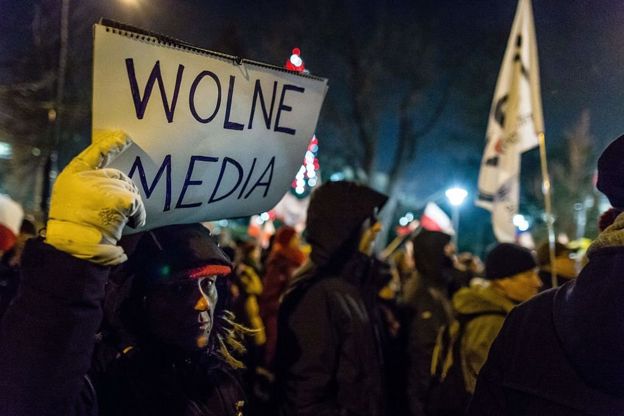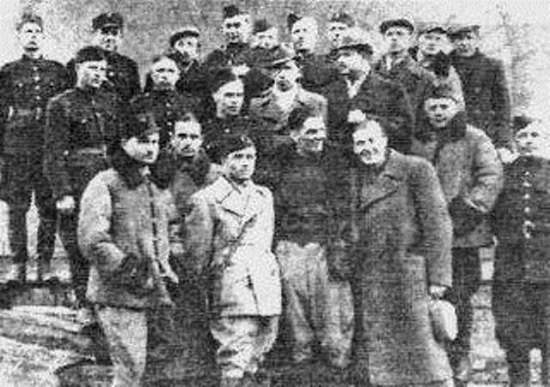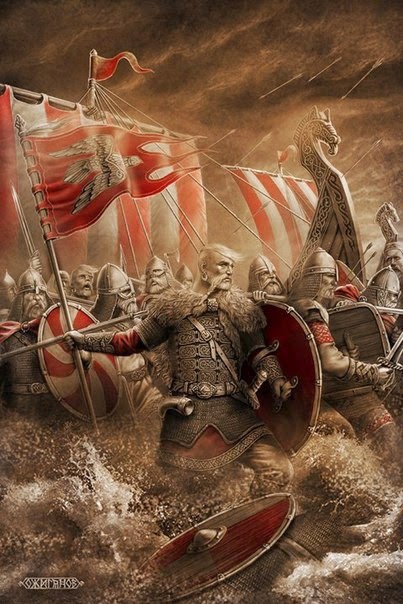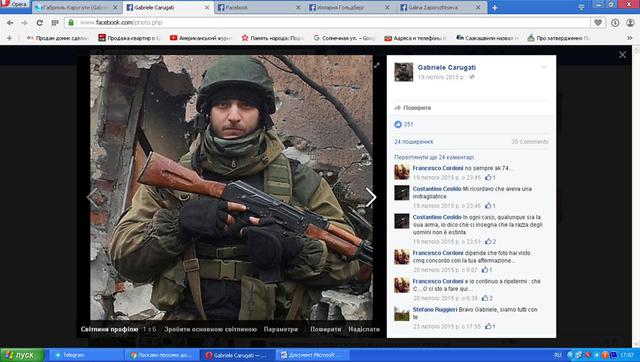OPPOSITION PROTEST IN WARSAW, WHY WE SHOULDN'T CALL IT A "POLISH MAIDAN"
As you may already know, an anti-government protests have been started by the Polish leftists in Warsaw about a week ago. A number of the European media have hurried to call it the "Police Maidan," although the comparison is absolutely pointless. Let's remind what was behind the protests in Kyiv in the winter of 2013-14 and take a closer look at the events in the Polish capital.
What must be understood about the Ukrainian Maidan of 2013-14 is that it was triggered by a number of reasonable factors, such as a complete loss of people's trust to the Yanukovych's government and anti-national policy had been conducted by ex-prime minister Azarov's government and the Party of Regions. Being controlled by the Kremlin the former government had actively contributed to economical occupation of Ukraine's energetic and industrial sphere by Russian oligarchs and TNCs.
And now let's look at the present political situation in Poland. According to December's polls rating of people's confidence to the current prime minister Beata Szydlo is 45%, the president's is 53% and the rulling Right and Justice party's raiting is 35%. In fact it is higher than a cumulative rating of two main opposition parties taken together - the Civic Platform got 18% and the Nowoczwsna - 9%. Indeed, Ukrainian authorities could envy to such rating now. But there is nothing surprising in this, such successful result is caused by a number of right steps the government took, among them we can note the abolition of raising the retirement age, introduction of a financial aid program for children, lower taxes. In addition, current government of Poland has consistently advocated national interests, opposing the biggest globalists of today in the face of Moscow and Brussels.
However, the continued success of the current socio-economic course is questionable, which gives the opposition hope to take a revenge and gradually reduce the ruling party rating. Thus, all news about the so-called "Polish Maidan" must be considered within this perspective.
The formal reason for the aggravation of political situation in Poland has become an offer to limit journalist activities in the parliament made by the Sejm Marshal Marek Kuchcinski. There was no proper mechanism of regulation of journalism activities in the Parliament, a few chairs and tables in the lobby of Sejm had been serving as a press center. Instead of this was proposed to to introduce the institution of permanent parliamentary correspondents, according to which two representative of each media resource would receive full access to the Parliament building for a cadence term. Rest of journalists would be free to work in a media center and a conference room. Should note that this principle of regulation of journalist work is relatively free comparing with with other European parliaments. However, the left opposition has regarded the proposal as an "attack on press freedom." Massive anti-government information campaign has been launched in opposition media.
The confrontation reached its apogee in the evening of December 16, when Michal Szczerba, a deputy from the Civic Platform posted a banner with the inscription "free media" on the parliamentary rostrum. The confrontation reached its apogee in the evening of December 16, when Michal Szczerba, a deputy from the Civic Platform posted a banner with the inscription "free media" on the parliamentary rostrum. This caused some misunderstanding and the opposition MP has been denied the right to participate in parliamentary sessions by speaker Kuchcinski. In response, members of the liberal opposition factions blocked the parliamentary rostrum. The parliament work was paralyzed, even though that such important issue as adoption of the budget was on the agenda on that day. The speaker was forced to move the parliament session to the Column Hall of the Sejm. Eventually, by voting by show of hands, the MPs has adopted new state budget and the law on the abolition of pensions for former employees of the communist Security Service. However, the opposition called this vote a "violation of the constitution" and a "coup." The opposition TVN broadcast company urged people to take to the streets.
As a result, the opposition rally gathered about 2 thousands people in the capital, while in other sites the number of protesters did not exceed few dozens. As regards the protest in Warsaw, some of its participants have distinguished by extremely aggressive behavior. In addition to the representatives and supporters of the parliamentary liberal parties the rally was attended by follower of the extra-parliamentary Razem neo-communist party, members of the extreme-liberal Democracy Defence Committee organisation as well as local antifa and LGBT groups. During the protest action the oppositionists blocked the entrances to the Parliament. This act appeared in media reports and opposition blogs as the beginning of "Polish Maidan."
In the same night the protesters were pushed back by police even without the use of special equipment (rubber truncheons, tear gas). Provocations by antifa activists, who rushed under the governmental cars, had not succeed also. The situation was not in favor of liberals, who struggled to find a reason to make themselves victims of "fascist authorities," so they eventually decided to make a precedent by own. First the opposition media had spread a fake that police used tear gas against the protesters (later was proved that it was a smoke bomb, thrown by a member of the antifa group); later one of the antifa activists just lay down on the ground behind a row of police and pretended to be "brutally beaten." THis was recorded by reporters and truncated video with the "victim of the regime" had been distributed all over the liberal media in minutes. However, full video with the simulator appeared in social networks quite fast, but it hasn't changed the whole situation.
After the opposition members had fell back from the entrance to the Sejm, the total number of blockade participants dropped to a few dozen. In the following days there took place not only opposition protests, but people had also gathered on pro-governmental rallies. Both gathered roughly equal in size - about a dozen thousands of participants. High tense level remains in media and social networks. Experts numerously drew attention to the fact that the opposition's protest campaign was well-prepared. It coincided with the visit of President of the European Council Donald Tusk to Wroclaw. Worth noting that Tusk actually is an informal coordinator of the liberal opposition in Poland.
However, at the same time, we must note the appropriate signals of support to the anti-government protests have been demonstrated both in Brussels and Moscow. As for the second side - it was quite obvious considering the messages in the Kremlin controlled media on the events in Warsaw.
In general, we should not exaggerate the extent of the Polish oppositionists' actions. The so-called "Polish Maidan" has nothing common with the protests in Kyiv of 2013-14 in both ideological and practical sphere. At the same time, aggressive moods that prevails in the opposition environment suggests a high possibility of further escalation of the situation. Despite the fact that the opposition supporters are in minority now, possible economic setbacks by the rulling government in future can trigger changes in the society's moods.
Another point to consider is that a considerable number of population of Warsaw, and other large cities of Poland, are sympathetic to the liberal political forces, In particular this applies to representatives of Polish senior and middle-class. In the case of further escalation of political conflict between the Polish left and right forces the situation could become irreversible; this would affect whole the region! Clearly that it is only Moskow who will have a benefit from such course of events, since the Kremlin's spin doctors have long been searching for the way to extend their "hybrid war" beyond Ukraine's borders.
As a result, the opposition rally gathered about 2 thousands people in the capital, while in other sites the number of protesters did not exceed few dozens. As regards the protest in Warsaw, some of its participants have distinguished by extremely aggressive behavior. In addition to the representatives and supporters of the parliamentary liberal parties the rally was attended by follower of the extra-parliamentary Razem neo-communist party, members of the extreme-liberal Democracy Defence Committee organisation as well as local antifa and LGBT groups. During the protest action the oppositionists blocked the entrances to the Parliament. This act appeared in media reports and opposition blogs as the beginning of "Polish Maidan."
In the same night the protesters were pushed back by police even without the use of special equipment (rubber truncheons, tear gas). Provocations by antifa activists, who rushed under the governmental cars, had not succeed also. The situation was not in favor of liberals, who struggled to find a reason to make themselves victims of "fascist authorities," so they eventually decided to make a precedent by own. First the opposition media had spread a fake that police used tear gas against the protesters (later was proved that it was a smoke bomb, thrown by a member of the antifa group); later one of the antifa activists just lay down on the ground behind a row of police and pretended to be "brutally beaten." THis was recorded by reporters and truncated video with the "victim of the regime" had been distributed all over the liberal media in minutes. However, full video with the simulator appeared in social networks quite fast, but it hasn't changed the whole situation.
After the opposition members had fell back from the entrance to the Sejm, the total number of blockade participants dropped to a few dozen. In the following days there took place not only opposition protests, but people had also gathered on pro-governmental rallies. Both gathered roughly equal in size - about a dozen thousands of participants. High tense level remains in media and social networks. Experts numerously drew attention to the fact that the opposition's protest campaign was well-prepared. It coincided with the visit of President of the European Council Donald Tusk to Wroclaw. Worth noting that Tusk actually is an informal coordinator of the liberal opposition in Poland.
However, at the same time, we must note the appropriate signals of support to the anti-government protests have been demonstrated both in Brussels and Moscow. As for the second side - it was quite obvious considering the messages in the Kremlin controlled media on the events in Warsaw.
In general, we should not exaggerate the extent of the Polish oppositionists' actions. The so-called "Polish Maidan" has nothing common with the protests in Kyiv of 2013-14 in both ideological and practical sphere. At the same time, aggressive moods that prevails in the opposition environment suggests a high possibility of further escalation of the situation. Despite the fact that the opposition supporters are in minority now, possible economic setbacks by the rulling government in future can trigger changes in the society's moods.
Another point to consider is that a considerable number of population of Warsaw, and other large cities of Poland, are sympathetic to the liberal political forces, In particular this applies to representatives of Polish senior and middle-class. In the case of further escalation of political conflict between the Polish left and right forces the situation could become irreversible; this would affect whole the region! Clearly that it is only Moskow who will have a benefit from such course of events, since the Kremlin's spin doctors have long been searching for the way to extend their "hybrid war" beyond Ukraine's borders.
Original by Zakhar BOYKO, source Azov Press






Коментарі
Дописати коментар